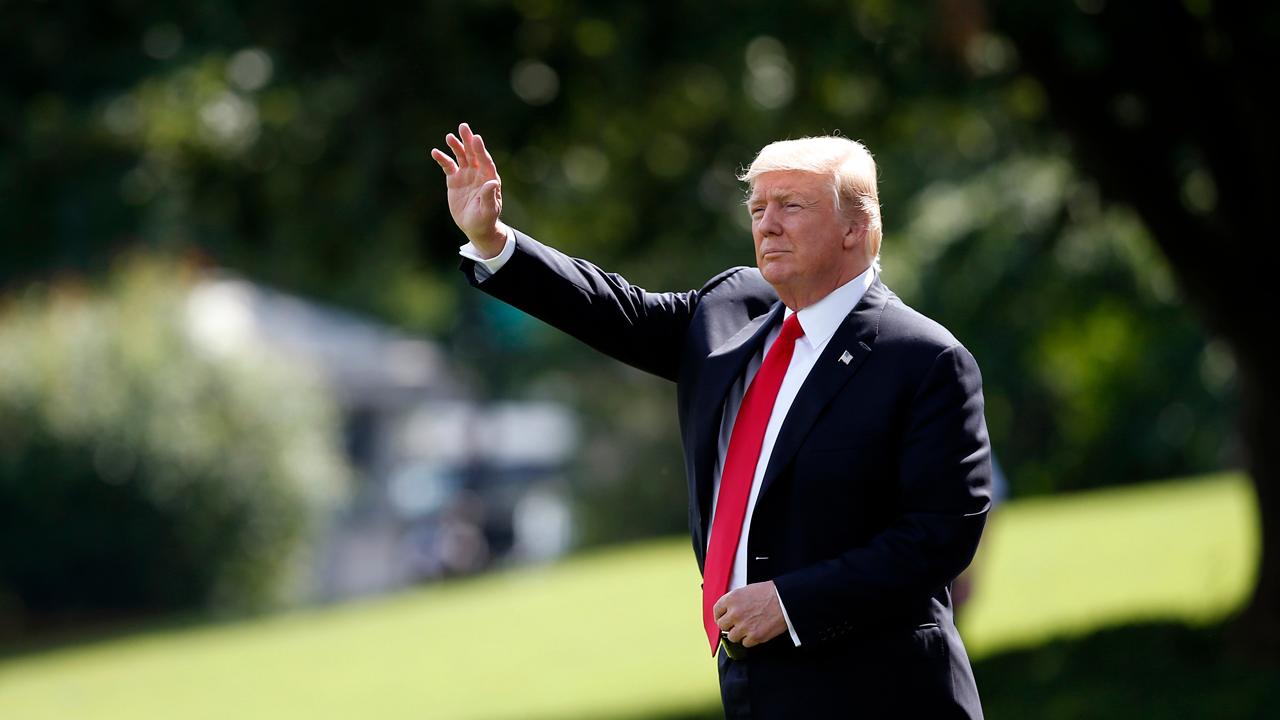Trump's plan to lower drug prices: What’s in it?
President Donald Trump announced on Friday a plan to lower the price of prescription drugs that promotes increased competition and eliminates the “middlemen” who he said prey on the current system.
“[This is] the most sweeping action in history to lower the price of prescription drugs for the American people,” Trump said at the White House. “We will have tougher negotiation, more competition and much lower prices at the pharmacy counter. And it’ll start to take effect very soon.”
The blueprint released on Friday contains 50 actions for consideration to bring down drug prices, which, according to health insurer Aetna, rose nearly 25% from 2012 to 2016.
Here are some of the steps the administration is proposing:
Increased competition
One of the main ways the administration is seeking to bring down the cost of prescription medicine is by increasing competition. President Trump said the Food and Drug Administration (FDA) is going to speed up the approval process for over-the-counter medicines, which will give consumers more options without incurring the cost of having to see a doctor for a prescription.
Additionally, the FDA will focus on streamlining the generic-drug approval process. The FDA approved more than 1,000 low-cost generic drugs last year, Trump said, which has not only increased competition but saved the American people $9 billion.
Health and Human Services Secretary Alex Azar said the administration wants to require drug companies to reveal prices in ads to improve transparency and keep them honest.
Patents
Trump said he would seek to reform the patent process to encourage innovation, but “it will not be used as a shield to protect unfair monopolies.” Drugmakers often go to great lengths to renew patents on popular products. Last year, for example, Botox maker Allergan came under fire for transferring ownership of its dry-eye medication, Restasis, to an American Indian tribe in New York State to extend its patent by using the tribe’s sovereign immunity as protection against competition.
Additionally, the president said he will make a priority of market access during trade negotiations so American consumers are paying the same amount for drugs as patients in other countries.
Rebates
There is skepticism over whether the discounts given to insurance companies by drugmakers are actually passed on to patients.
The Trump administration is seeking to pass a larger portion of rebates directly to consumers, particularly Medicare patients. As things stand, insurers say consumers benefit from rebates through lower costs. In recent months companies including Aetna and UnitedHealth have added policies to give those discounts directly to patients.
Medicare
The president wants to arm Medicare negotiators with new tools to obtain better prices for patients. Secretary Azar said the administration wants to bring the private sector into the negotiation process to facilitate that outcome.
The blueprint also proposes to end a gag rule that “punishes pharmacists for telling patients how to save money,” according to the president.




















